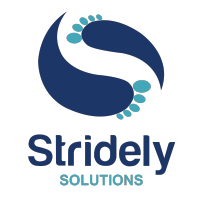CRM or Customer Relationship Management; this is one term that businesses of all sorts are aware of and leaves no turn to attain maximum excellence. Streamlined and impressive CRM is what lays the foundation of a successful business as this operational area allows a business to value its customers and deliver its services as the customers expected or desired.
CRM is not a one-man’s job. It involves multiple sections and can only help you out when there is a synchronization between all these parts.
Watch here: Superior Decision Making with Dy CRM
In this post, we’re going to talk about the key role players of a CRM ecosystem, its importance, and ways to empower it. So, let’s get started.
CRM Ecosystem- The Success-driven Factor
A CRM ecosystem is not a term used collectively for vendors or stakeholders. It refers to a group of CRM constituencies that are co-related and form the entire Enterprise CRM ecosystem of an organization.
For beginners, CRM constituencies are the components responsible for the relationship building between a business and customers. Some of the key CRM constituencies, responsible for building a company’s CRM ecosystem, are:
- Internal management team
- Customers
- Stakeholders
- Third-party service providers
Let’s have a detailed understanding of these components:
-
The Internal Management Team
The very first component of any CRM ecosystem is the internal management team or the business itself (in the case of a start-up or small business).
The entire CRM ecosystem stands on this constituent as it’s where the inception of CRM strategies and business-customer relations begins. There are a couple of models like the IDIC model, CRM Value Chain Model, and QCI model that one can follow to build a management team.
-
Customers
The whole point of having a CRM strategy or put efforts to empower it is to attract or retain more & more customers. Customers are what drive success for a business and they are one of the most vital parts of a CRM ecosystem.
As the buying behavior of the customer changes, the other constituency of the CRM ecosystem has to take needed actions to increase customer satisfaction.
-
Stakeholders of a Business
The third CRM constituent refers to the stakeholder or group of stakeholders, investing in the business. Because of their investment only, a business runs. Hiring the management team and buying crucial CRM systems is possible only if there are stakeholders in a business.
-
Third-party Service Providers
It refers to any service provider who is helping a business to ensure improper implementation of CRM strategies. CRM is no longer a job done manually. There are various tools & technologies required for the automation of reporting and collecting accurate data. To reduce the complexities of CRM and helping businesses to contrive impressive and result-driven CRM strategies, we have CRM systems. This constituency refers to the vendors selling the license of CRM software & applications to the business.
Depending upon the type of deployment preferred by the business, these vendors can take care of CRM system maintenance, deployment, and upgrade as well.
CRM Systems- Empowering Customer-Business Relations in Best Possible Manner
Gone are the days when running a business was all about profit and loss. Today, it’s all about customer experience and satisfaction. CRM system is designed to take care of this aspect only.
CRM system is an application, driven by AI, helping businesses to manage, collect, and analyze customer data. By deriving results from the customer data, the CRM system helps the sales department to make data-driven decisions, allows businesses to have an in-depth understanding of customer behavior, and let the marketing team do targeted marketing.
This is just the tip of the iceberg. There are tons of various other tasks that a reliable CRM system can perform.
Here are some of the key benefits of using a CRM system:
-
Time-saving
The CRM of today’s era is empowered by automation. Starting from entering customer data to creating reports, the CRM system brings the power of automation in everything and allows end-users to save a huge deal of time.
-
Improved productivity
When time is saved, it’s obvious that the team is going to experience great productivity. More actions can be taken in less time and businesses are going to achieve their goals speedily.
-
Timely and trustworthy reporting
To make the right decision, businesses must have access to accurately analyzed data and informative reports. CRM system allows you to go deeper into available data & metrics and derive results from them.
-
Simplified collaboration
With features like instant messaging, self-service tools, and email sync, CRM systems are going to simply & speed up collaboration at every level. Whether you’re collaborating with customers or with co-workers, CRM is going to perform this job with full perfection.
Types of CRM System
No two business needs are the same. Keeping this fact in the mind, CRM systems are also offered in multiple types. The three key types are:
- Desktop-based CRM system
- Server-based CRM system
- Cloud-based CRM system
-
Desktop-based CRM system
It runs on a single device and is entirely managed by the business. The vendor only provider the CRM system license. End-user has to bear the start-up, installation, security, and maintenance-related expenses. For effective operation, one has to have a skilled in-house IT team
-
Server-based CRM system
Mostly used by huge enterprises and business houses, this kind of CRM system has a dedicated central database, managed on a server. Mostly, such CRM systems are self-hosted and are installed on each team members’ device.
Just like the desktop-based CRM system, it also comes with hefty initial set-up costs and forced end-user to take care of set-up, installation, and maintenance-related hassles.
-
Cloud-based CRM system
This one is the most famous type of CRM system as there are no set-up and installation worries for end-user. The vendor takes care of all these and many other operational aspects by charging a monthly fee.
It’s is accessible from everywhere as this CRM system is deployed online.
From the cost and affordability aspect, we must admit that this is one of the most pocket-friendly options available as end-users are not forced to take care of the set-up, installation, and maintenance cost. There is no need to own a dedicated in-house IT team to look after it.
Speaking of mobility, it’s hard to bear a cloud-based CRM system as one can access it on any of the data-driven devices.
What Should Include in An Ideal CRM System?
A CRM system is of no use without the below-mentioned features:
- Contact Management- This feature is here to save and collect all the key & updated features of the customers and allows a business to build an informative customer database. All kinds of contact details and service conversations are handled here.
- Lead Management– Using this feature, the CRM system can keep tabs on the pipeline activities, figure out the useful leads, and manage the leads carefully.
- Sales Forecasting– This feature is useful for a salesperson to have a better hold over the future picture of the company’s sales and figure out what actions are needed to improve the sales figures.
- Instant Messaging- Connect with the employees and the customers in a blink of an eye using this feature. Real-time instant messaging functionality allows businesses to gather customer feedback and suggestions instantly.
- Email Tracking and Sync with Outlook- Instant email syncing allows a CRM system to connect with customers and business people instantly and exchange data without any delays.
- File and Sharing Content- Share crucial information over a single click using the file-sharing integration. It has a huge impact on the team’s productivity.
- Dashboard-based Analytics- Things become easier than ever then when crucial information is presented intuitively. The dashboard feature of the CRM system makes this happen as everything essential is represented in a useful manner.
Other than these basic features, few advanced CRM systems can go beyond usual and offers marketing automation. Call center automation, and help-desk automation.
Things to Keep In Mind While Buying a CRM System
The CRM system indeed holds the power to build the bond between customers and businesses. However, this is going to happen only if it’s the best of the breed. Here are some of the qualities to look after in an ideal CRM system:
- It should be easy-to-use and supports customization
- Preferably based on cloud
- There should be a mobile app and multiple integrations offers.
- The vendor should offer multiple subscription plans to meet a different kinds of business needs.
Future of CRM
Customers are going to play a crucial role in a business’s success today and tomorrow. This isn’t going to change. One other thing that isn’t going to change is the ability of CRM systems to leverage CRM operations and empower a CRM ecosystem.
As we march ahead towards the future, CRM systems are going to be more & more crucial. It is at the heart of every growth-seeking business. The current market predictions show that the CRM market is going to touch the mark of $80 billion by 2025.
Wrapping Up
Before you dream of touching success highs, don’t forget to strengthen the business-customer relations. CRM system is going to help you big time. The advanced AI and a bunch of crucial features have it an indispensable part of business growth.
Its adoption is going to empower the CRM at multiple levels and let the businesses have a constant focus on the growth. Go ahead and make CRM a part of your business ecosystem.
Hire experts from Stridely to guide and help you towards CRM adoption.


